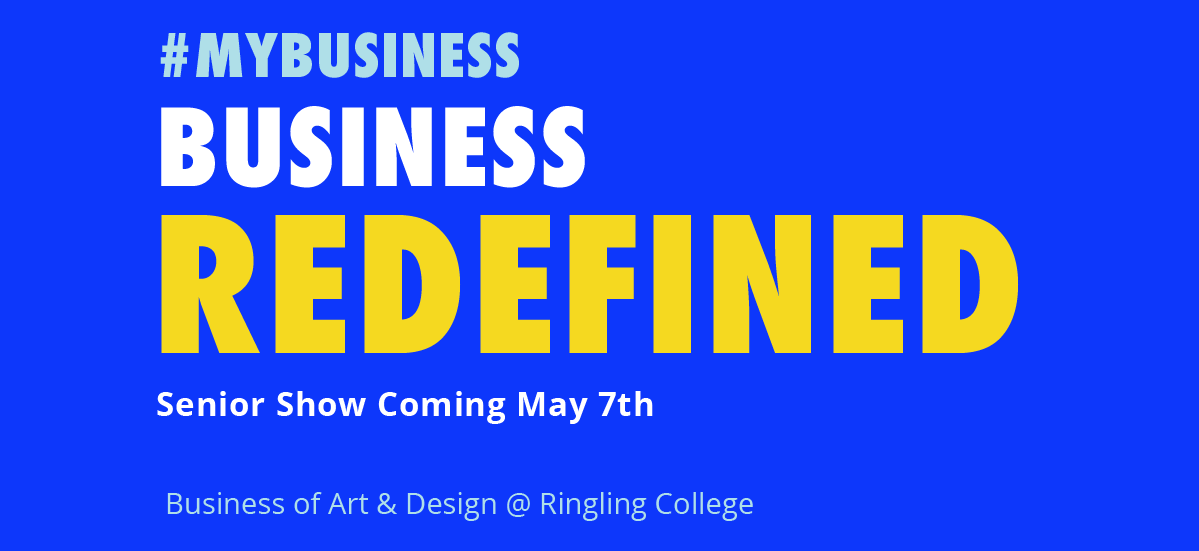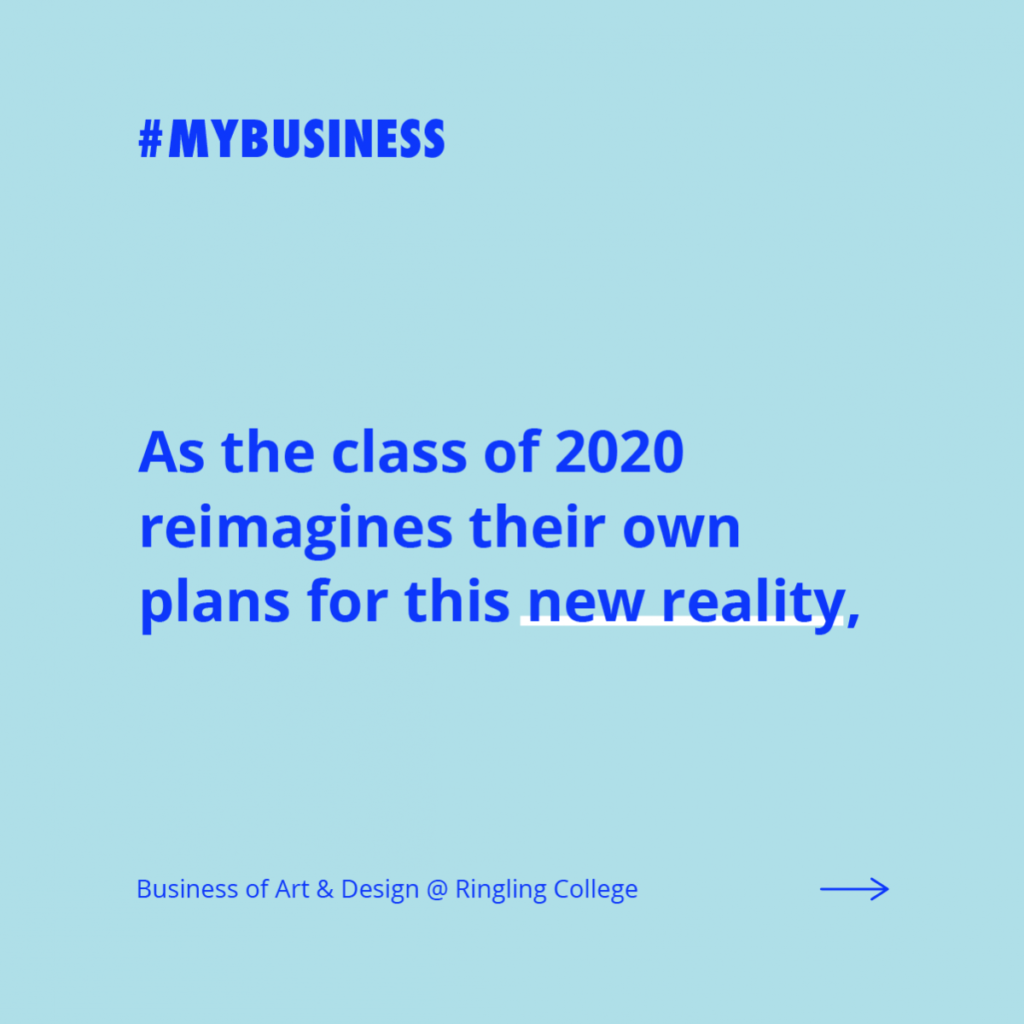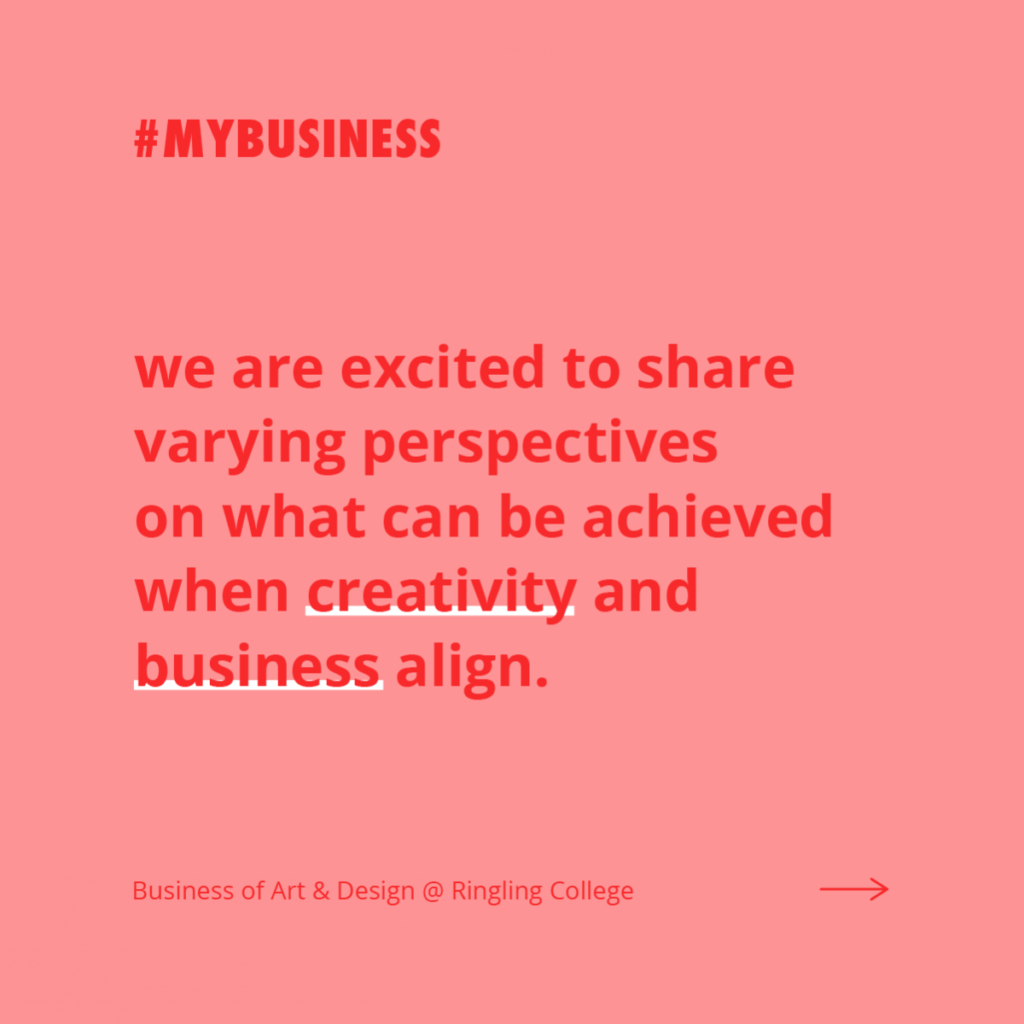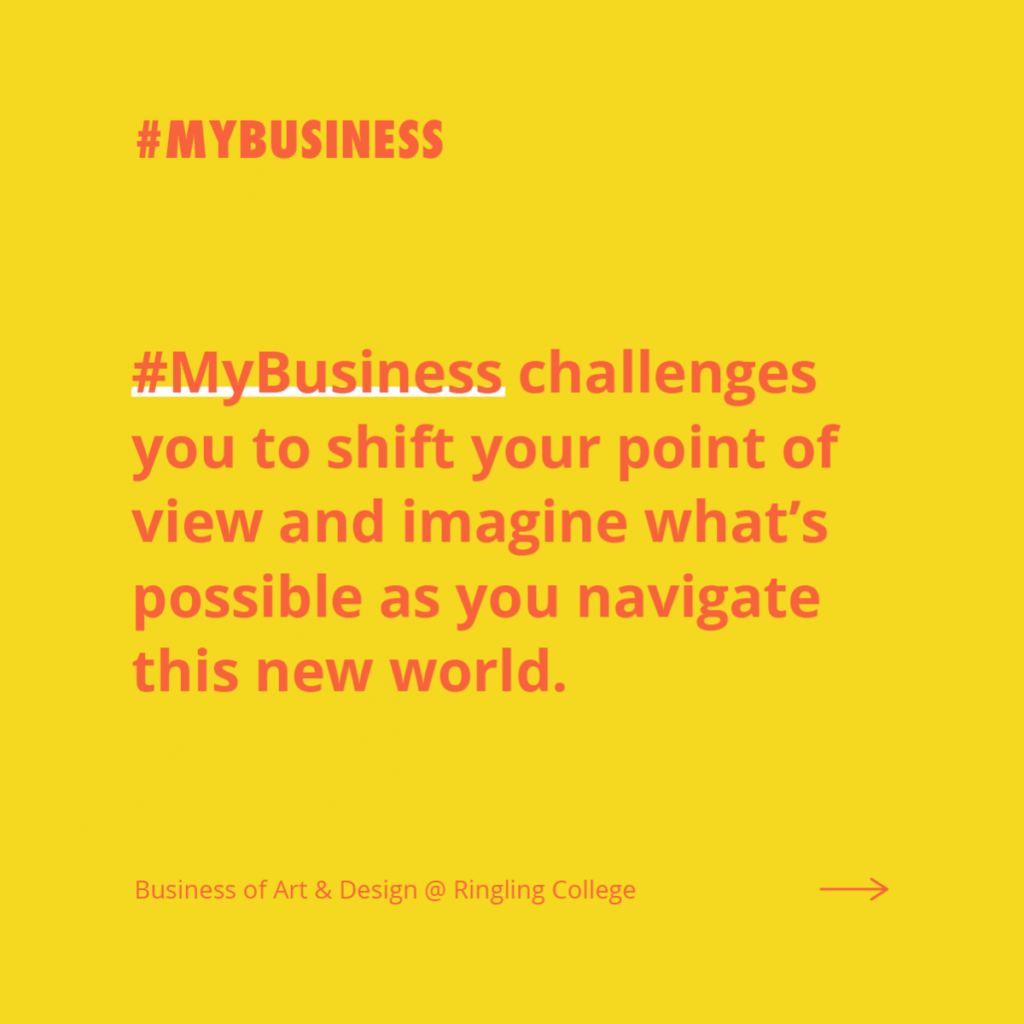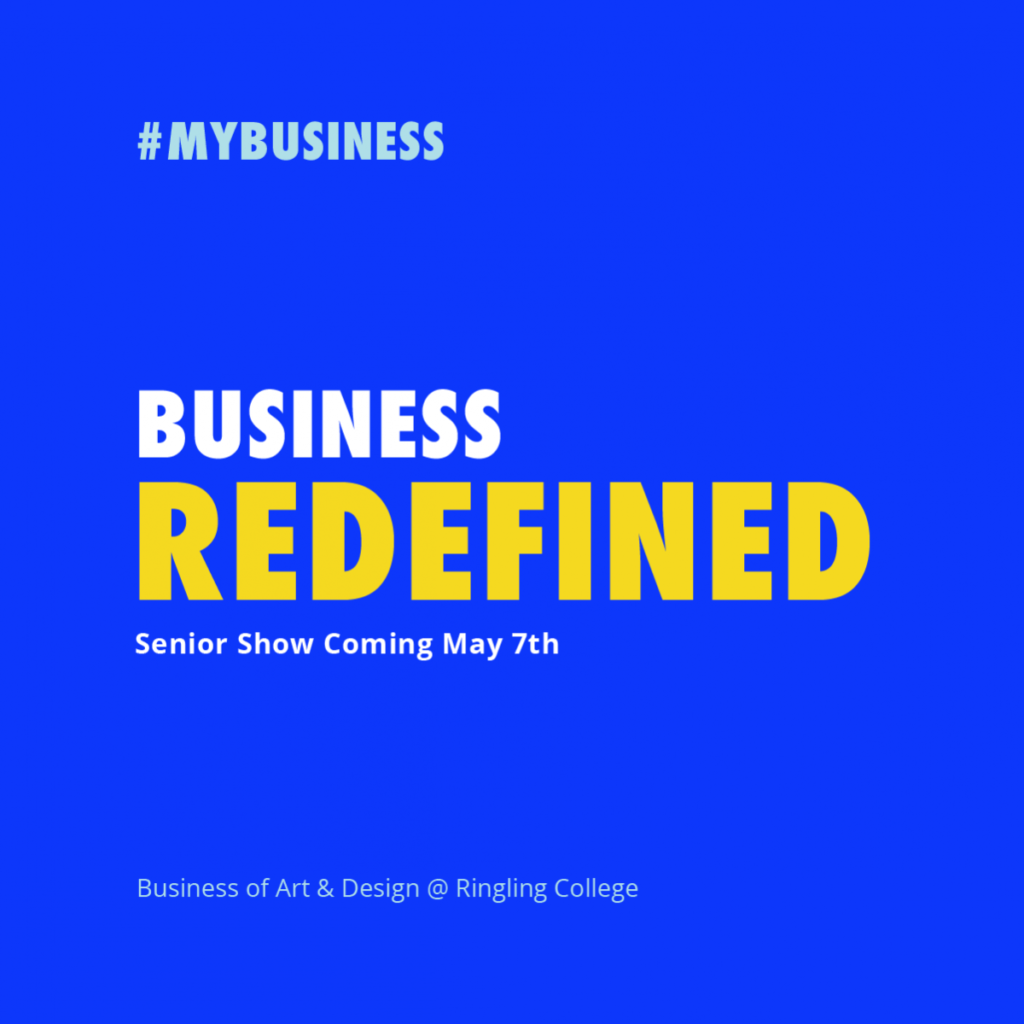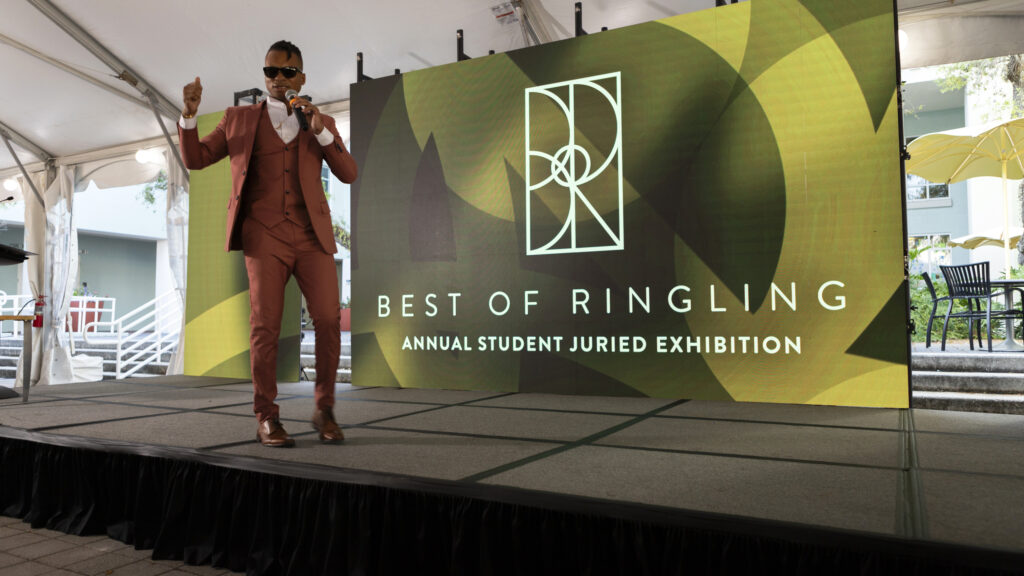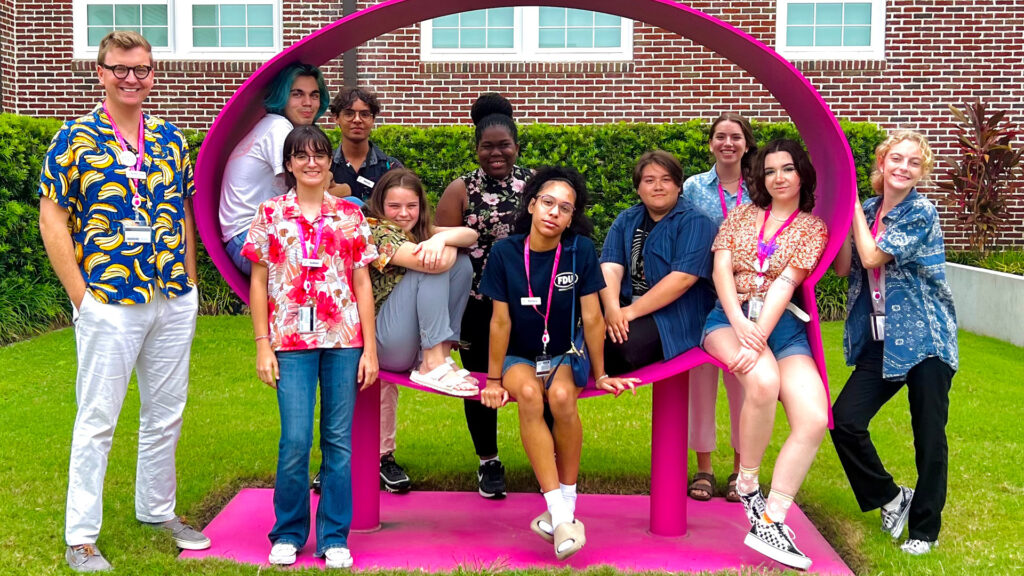This is one of those moments. This. Right now. You’re in it. In a few decades, you’ll recount stories to coworkers and little ones about where you were when coronavirus came calling and how quarantine changed the face of communication for, possibly, ever. Beyond the illness itself, the truly lasting impact may be what happens next in business. As we all bear witness to companies crumbling before our eyes and startups scrambling to stake their claim in the game, Ringling College of Art + Design has a handful of senior students who are about to join the ranks of the ‘real world’, and they may be the most prepared to shape what lies ahead for all of us.
Corporations have spent decades making a big to-do about our collective human experience, using our shared realities to sell us everything from lightbulbs to life insurance, but it’s highly doubtful that many, if any, CEOs have lived through an event that affected the entire globe. Even World Wars didn’t actually include the whole world. But now together, we all face a new type of economic adversary that will change the way we live, work, and play. Who better than broad-minded business students, especially those with their fingers not just on the pulse, but instead dug deep down in it, to understand, strategize, and paint a clearer picture for tomorrow’s unknowns.
“BOAD brings so much color to the concept of business”
Kaitlyn Guerrero
On May 7, 2020, the Business of Art and Design (BOAD) senior class will digitally debut their @RinglingBusiness Senior Show, exchanging the intended on-campus, in-person audience for an online crowd both near and far. The exhibition is the culmination of creativity in business mixed with each students’ personal area of interest. The show’s spotlight may be centered on what it means to be a business student, but the bigger picture aims to show the meaning of business on a larger stage (hint: it isn’t just meetings that could have been emails).
Given COVID-19s unfortunate timing (though it’s never quite the right time for a global pandemic, is it?) the students had to swiftly switch gears to reconfigure the show to connect with strangers across a computer screen. In a couple of weeks, BOAD seniors Pablo Murray-Campbell, Emily Fritz, Iana Prakheeva, Christian Lauber, Shannon Davis, and Kaitlyn Guerrero will visually and verbally express the importance of bringing unbridled creativity into the business realm and structured thinking into creative spaces, core values they’ve been learning at Ringling College since day one, but themes that currently prove more powerful than ever as skillful ingenuity and a lithe imagination will, undoubtedly, serve as the catalyst for entrepreneurial agility and empathy in the ever-shifting status quo.
“There’s this misconception of what business is in the popular imagination,” says Pablo Murray-Campbell, “We want to show how creative innovation in business affects the way we enjoy consuming everything from services to entertainment. The virus gives us the perfect opportunity to pivot and show the importance of being able to adapt to unforeseen circumstances.”
Christian Lauber adds, “Ten years ago you couldn’t have done what we’re doing and how we’re adapting.”
“Technology is such a silver lining as it allows us to be with people, and that’s really what business is all about – working ‘with’ someone for an end goal. We may have been forced to pivot, but the challenge was simply physical. Our commitment to our thesis, and to one another, is something that hasn’t changed.”
Surely you’ve heard there’s an art to business. But BOAD proves there’s a business to art. Certainly, creativity is a word that gets thrown around quite a bit at a design school, but it’s grounded in good reasons. In tomorrow’s new normal, creativity and visionary thinking will be what allows organizations to get a much needed leg up. And, yes, of course, many big businesses have proven their creative prowess with incredible marketing campaigns and out-of-the-box ideas, but when many think of Fortune 500 companies, they still imagine a bland boardroom stuffed with suits and ties. To be fair, there’s a lot to be said for linear thinking and strategic planning as well, thus these students aim to uncover the secret sauce in the best business recipes. After all, thinking creatively about business has been their entire world for nearly half a decade. They know how to take the structured side of business and wield it as the ultimate tool for design and vice versa.
“We have so many toolkits in our back pockets,” explains Kaitlyn Guerrero, “How do we show people who question why we’d choose to learn business at an art school the importance of both? BOAD brings so much color to the concept of business.”
“There’s so much misconception around business,” adds Emily Fritz. “I’m consistently asked why I would study at an art school as people have a black and white perception of what business accomplishes, but the truth is we are taught to be the most creative problem solvers.’”
Big businesses often talk a big game about being able to change with the times, but their practices don’t always enable that maneuverability. For these seniors, this sudden change in events presented the perfect opportunity to position their skill set for the public to see as now, more than ever, companies are realizing that they will need the beauty of art and the structure of design, but, most importantly, brains that can do both without batting an eye. Because, let’s face it, ‘business as usual’ is no longer business as usual.
Want to know more? Of course you do. Don’t miss the BOAD Senior Show on Thursday, May 7th. Log on to www.ringlingthesis.com/business to watch these dynamic students digitally run their victory lap.
In the meantime, check out their #MyBusiness campaign on Instagram and Facebook.

